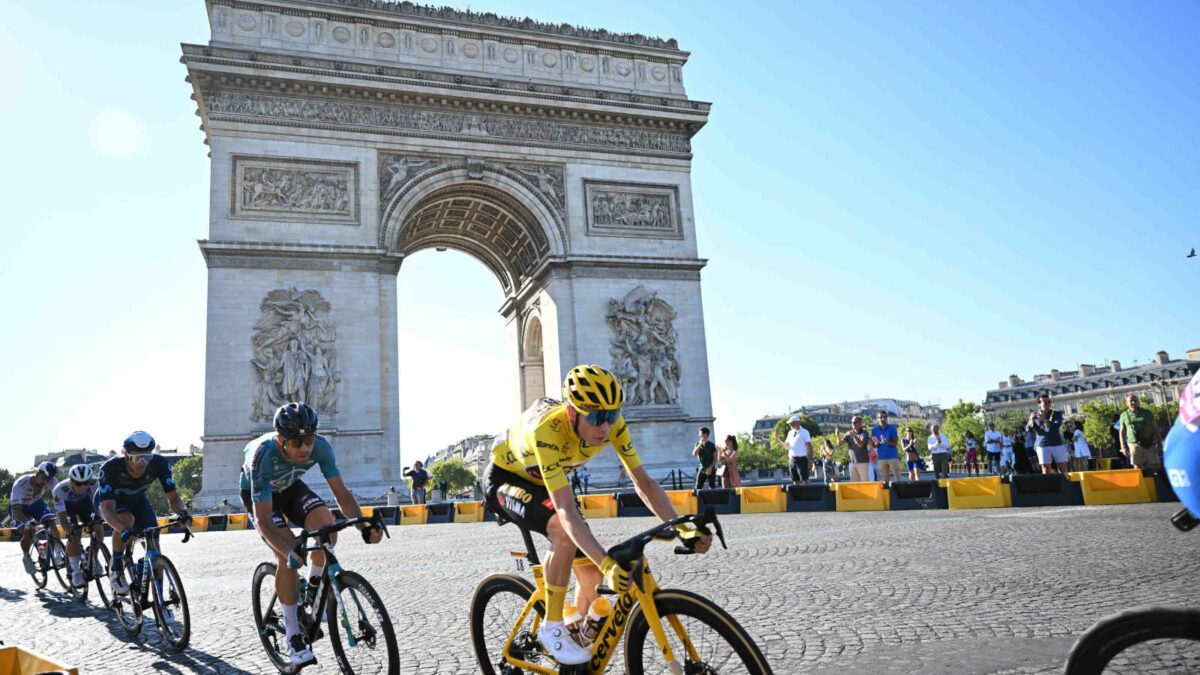WorldTour teams, including Ineos and Jumbo exploring new league and business model
The new project would focus on funding and profit-sharing fairness
 Photo by:
Sirotti
Photo by:
Sirotti
According to a report from Reuters, some of the top teams in pro cycling are considering a new competitive league that would reshape the financial landscape of the sport.
What’s striking about this project is the potential involvement of external investors, according to an anonymous source. The concept would involve the amalgamation of both existing and new races.
Five teams currently involved
The source said that five prominent European cycling teams, including Ineos Grenadiers, are involved in the project. It’s expected that more teams may soon join this movement, which aims to revolutionize the world of cycling. The Jumbo-Visma team is also playing an active role in shaping the initiative.
When asked for comment about the league, spokespeople from Ineos Grenadiers and Jumbo-Visma had no comment. Presently, the exact timeline for these discussions is unclear and Reuters couldn’t determine when or how the project came about.
Step 4: Profits
Among the parties expressing interest in the project is CVC Partners, a heavyweight in the world of sports business. The Luxembourg-based investment firm previously owned F1. Just like Ineos and Jumbo, a spokesperson for CVC had no comment.
At the heart of the project there is a big goal: the redistribution of a portion of the profits generated by races among the teams. Currently, teams rely heavily on external sponsorships to sustain themselves financially. With the current business model, the majority share of profits from the biggest events, such as the Tour, Vuelta, and the Giro, flows into the coffers of the event organizers.
Updating an antequated business model
Richard Plugge, the team manager of Jumbo-Visma, is rumoured to be playing a significant role in the discussions.
“It’s obvious that cycling is a sleeping giant and deserves an improved business model,” Plugge told Reuters. However, he refrained from providing a comment about his involvement in the talks. “For all the stakeholders, but especially for the WorldTour teams. The only way to get there is cooperation.”
Central to the discussions is the pivotal role played by Amaury Sports Organisation (ASO), which commands authority over races the Tour de France. The Giro d’Italia falls under the purview of RCS Sports.
Déjà vu?
This is not the first time cycling teams have contemplated a league project. Back in 2012, eight teams initiated a project known as World Series Cycling, which never came to fruition. Some speculate that the project’s failure was tied to the omission of the Tour de France.
The discussions around this venture are further complicated by recent posts by Brian Cookson, who was UCI president from 2013 to 2017.
Difficult for some race organizers to make money
Cookson shed light on the financial difficulties faced by most race organizers.
“Outside of the 3 Grand Tours and a small handful of one-day races, there are no profits from organizing bike races. In fact most races are struggling to cover their costs,” former Brian Cookson posted on X (formerly Twitter.) “Those companies that do make a profit, specifically ASO, aren’t going to share it with the teams, as previous attempts to reform pro road cycling have shown. If ‘investors’ are to be brought in to make this happen, where is their return on investment coming from, given that the profitable events won’t share and the other events have nothing to share?”
Here we go again. Plans to form a new league to channel some of the profits from race organisers into the teams. A short thread follows.
— Brian Cookson OBE (@BrianCooksonOBE) October 26, 2023
